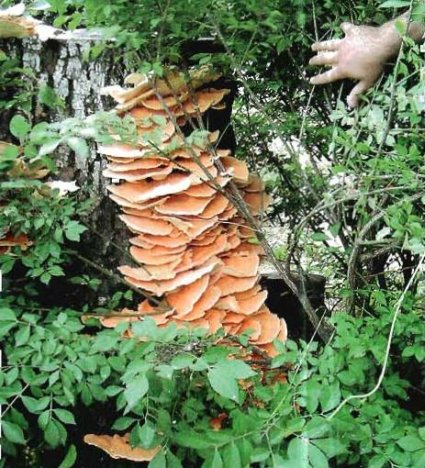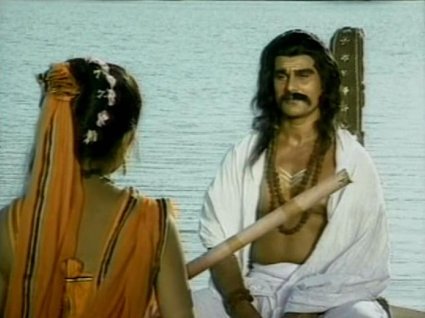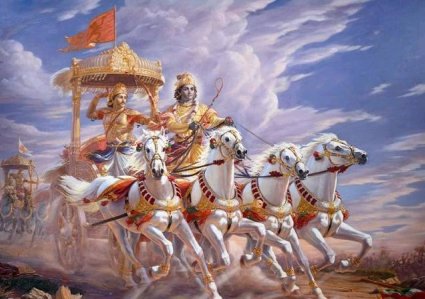
This is the first of a series of posts that will cover the "Top 100" forest garden plants taken from volume 1 of the Edible Forest Gardens books. We will start with the fungi and work our way up to the trees. In Anastasia book 4 chapter 14, Vladimir mentions mushrooms briefly.

Russians are accustomed to eating mushrooms - well boiled, fried, marinated or salted. Anastasia eats them in their dried, natural state, without any processing. One time I was travelling from Moscow to Gelendzhik by car for a readers' conference. The whole trip I lived on mushrooms Anastasia had given me.
We now take a look at the 4 species of mushrooms listed in the "Top 100".

Shiitake - Lentinula edodes
Many farmers and gardeners in our region grow shiitake mushrooms. Their cultivation is fairly simple and reliable. Shiitakes will grow on logs or stumps. Their rich flavor and firm texture make shiitakes a popular gourmet mushroom. Many Asian cultures also consider them medicinal. (image above)
Oyster Mushroom - Pleurotus ostreatus
Oysters grow easily in a variety of substrates. Cultivators usually grow them on logs or stumps, but they can also grow in compost piles, straw mulch, or almost any carbonaceous material. They are voracious decomposers and are even used to clean up and digest toxic oil spills. Their gourmet flavor does, in fact, resemble that of oysters.
Chicken-of-the-Woods - Polyporus sulphureus
Chicken-of-the-woods mushrooms provide exceptional quality food. They exhibit a Day-Glo orange color and actually do taste just like chicken. Chicken-of-the-woods grows best on stumps but can also grow on partially buried logs. (image below)
King Stropharia - Stropharia rugoso-annulata
King stropharias are large, gourmet mushrooms. Their flavor resembles that of potatoes cooked with wine. Stropharias are well suited to cultivation in straw or wood-chip mulch—in fact, they commonly pop up uninvited in bark mulch used for landscaping. When overmature, the caps can exceed 12 inches (30 cm) in diameter.






